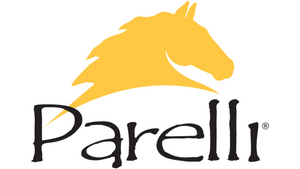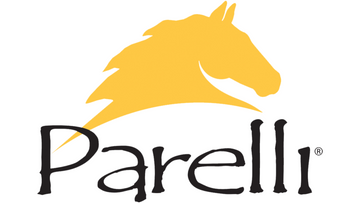The Seven Types of Horse Lovers
presso Parelli Natural Horsemanship su Apr 27, 2022

There are only two kinds of people in the whole wide world: Horse-Lovers and… the other kind.
However, there are seven different types of horse-lovers, and they are start with ‘N’. There are Naturals, Normals, Nuts, Nuisances, Nerds, Nervous—and finally—the Negative Knockers.
We all have our own personalities based on four things: innate characteristics, environmental influences, learned behavior, and spirit. Winston Churchill rightfully said, “There’s something about the outside of a horse that is good for the inside of a man.”
When we wake up to the fact that we are a horse-lover, many times that is because of our environmental influences—whether we were raised on a ranch or horses were nearby your home. Either way, you may have once thought to yourself: I want to have horses in my life.
I didn’t have horses in my environment, but I often loved watching the cowboys on TV growing up in Northern California, where there were horses aplenty. Our high school even had a school farm where we could ride our horses to school and leave them there if we wanted to.
Learning to be a horse-lover is the first step, then learning to be a horse owner is second, then becoming a horse rider is third, and becoming a horseman is final.
So, you may be asking yourself, what does it take to become a horseman? I think it takes a true love of the horse and a natural aptitude to work with them. Everyone, I believe, has a natural talent. Playing with horses just happened to be something that came naturally to me—not just riding them but understanding and communicating with them. I remember my 4H Leader telling me as a child, “You are so natural with horses; you should consider horses as a career.”
I lived by her suggestions, and to my surprise, she was right. Some people are so natural when they ride that they look like a part of the horse. Other people try and try, and they continually look like a foreign object on a horse.
The Natural
Many people criticize the term Natural Horsemanship. I coined this phrase because it's natural for horses, but not necessarily natural for people. To some it is, though, and that’s where our first type of horse-owner comes into play: The Natural.
After working with thousands upon thousands of people, I estimate that about twenty percent of all horse owners are natural with their horses. The difficult part for these folks is that some people whose are naturally good riders often get influenced by their environmental (i.e. training facilities, competitive practices, etc.). After all, humans are primates—We are “monkey-see, monkey-do” learners, and we're easily influenced by peer pressure (and addicted to linear thinking). This causes people to do things to the horse rather than with the horse and for the horse.
I've said it no less than a million times: Humans are natural until they’re twelve-years-old, then they turned into acting adults. An adult is a human being who practices making simple things difficult and is easily addicted to linear thinking. So, often, naturally-gifted horse lovers succumb to what I would call “normal” or “traditional” horsemanship, which is predicated by the rules made in the military. For example, in “normal” horsemanship, you must always mount on the left-side and have your bit tight enough to put two or three wrinkles in their mouth, etc.
The Normal
Those that say “You must show a horse who is boss” practice “normal” horsemanship, which brings us to the next horse-lover: The Normal. My goal is to help people recognize the difference between natural and normal. Horses are natural followers, so they're looking for natural leaders.
The Nut
The next type of horse-lover is The Nut. It may sound harsh, but there are some people who are so anthropomorphic (meaning they put human thoughts and values into the animal's actions), that they're unrealistic and often, they are overly optimistic about the relationship. These are the folks that, many times, get very hurt with horses.
Always remember that it's great to be optimistic and realistic at the same time. If you're realistic without being optimistic, it makes you a pessimist. And if you’re optimist without being realistic, it just makes you a Nut. You must remember that you're dealing with a prey animal that weighs 1200-pounds. That animal was born a skeptic, coward, claustrophobic, and panic-a-holic by nature in various degrees. It's easy to get hurt with a horse when you're not realistic, especially when you try to make him do things (or let him do what he wants).
The Nuisance
That brings us to the next type of horse-lover: The Nuisance. In my last 50 years as an equine professional, I’ve had several clients enter the barn complaining about the last two or three stables where they were. It wasn't long before I realized that we were the next on that list to be complained about. Normally, those types of people have a reputation that follows them, which is why we require references to enter our facility.
The Nerd
Then, there are The Nerds. These are the people that know everything about horses from the perspective of theory. Oftentimes, these folks have keyboard courage. They normally create and develop their opinions based on all the theory they have studied and read. They oftentimes know more about pedigrees than anybody you've ever met in your life, but they cannot ride a horse well (if at all).
The Nervous
Then, there are The Nervous horse lovers. There are plenty of horse lovers out there like this that should just love the horse because they cannot ride the horse or handle them on the ground with confidence. Because of their nerves, horses—as herd animals—are highly influenced by the nervous energy of their human leader.
The Negative Knocker
The last—and least enjoyable to be around—type of horse lovers are The Negative Knockers. Most of the time, these people don’t ride, but they train and give advice. They have opinions based on chauvinism, autocracy, anthropomorphism, and linear thinking. These are, many times, the “trainers” in every discipline that charge hourly fees to train you with your horse. They are a dime a dozen. They can fool the fans, but not the players. Sadly, the horse is the player.
All Horse Lovers Are Welcome at Parelli Natural Horsemanship
If you want to excel in a specific learning program, philosophy, or religion, you must surround yourself with people of like minds. With horsemanship, it should be no different. Surround yourself and your horse with people who believe in the same philosophies, training programs and personal beliefs. The good news is that your horse wants you to become its partner. He or she will thrive under natural leadership using love, language, and leadership in equal doses.
What Parelli has created is a blueprint to follow to give you the roadmap to accomplish this. This complete blueprint—along with support and supplemental education—is all inside the Savvy Club. Learn the Parelli Method, advance through the levels, and reach the partnership with your horse you never knew was possible. Learn more about the Savvy Club here.







